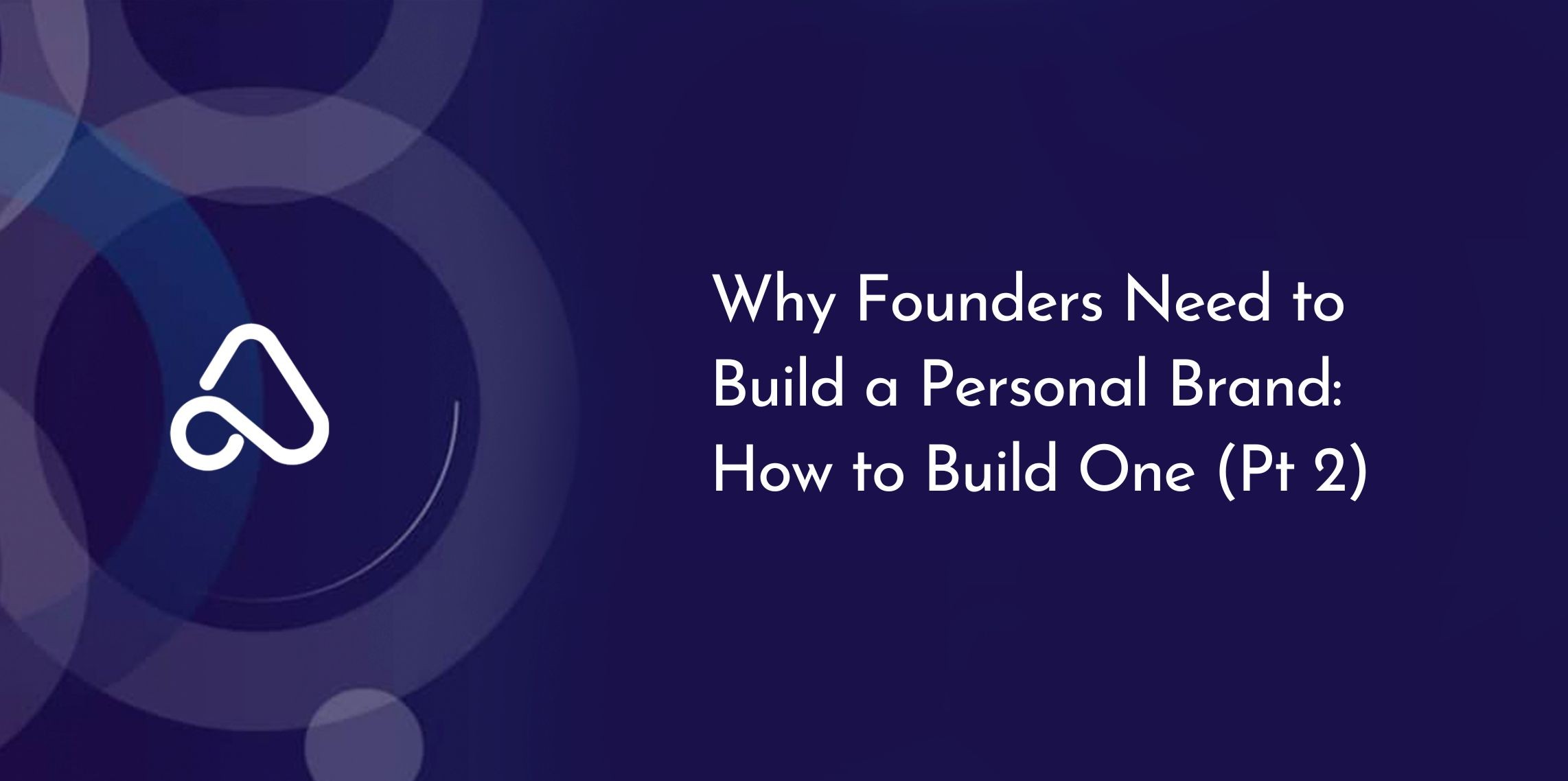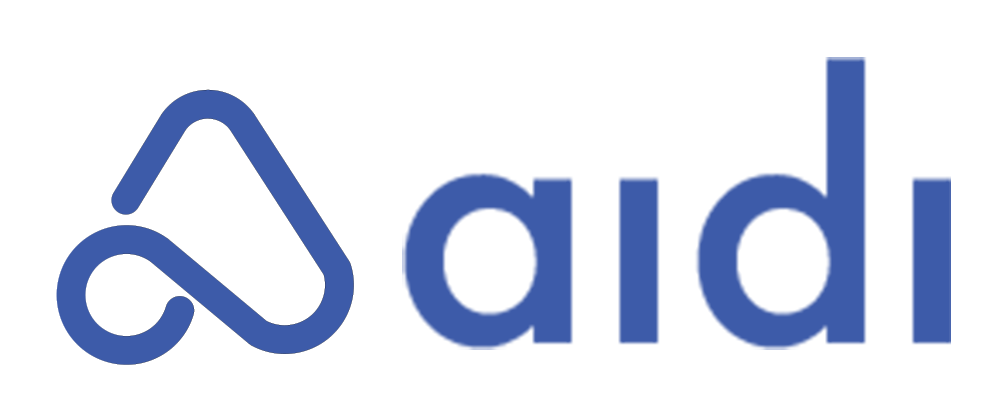Aidi — Why Founders Need to Build a Personal Brand: How to Build One (Pt 2)
Return
In our last article, we explained what a founder/personal brand is and why it is important for founders to have one or start building one. In this article, we will be exploring how you can build a founder brand and platforms you can leverage to build one.
While building a founder brand is important, it is important to mention that it’s not about becoming famous, but rather about building authenticity and creating value, which can eventually lead to higher customer acquisition and improved sales for your startup.
How to Build a Strong Founder Brand
- Find a Brand Identity: The first thing to do is to find and define your brand identity. You don’t need to be an expert in everything. Find a niche that aligns with your startup and expertise. For example, if you run a fintech startup, you could focus on financial inclusion, digital payments, or startup fundraising. You should ask yourself when creating your brand identity: “What do I want to be known for?”, “What topics am I passionate about and have good knowledge on?”, “How does my personal story connect to my business?”
- Leverage the Right Platforms: You don’t need to be on every social media platform to establish your presence. Not all platforms work for everyone. Rather, what you can do is to look for a social platform where your audience and industry players are most active; that’s where they will find you or notice you. We’ll shed more light on the platforms you can leverage later in this article. Also, engage with posts of other industry players. Personal branding is not just about posting, it’s also about engagement. Respond to comments, contribute to conversations in your industry, connect and interact with fellow founders, join relevant online groups or forums that align with your industry.
- Share Your Journey, Not Just Your Successes: When you eventually find the right platform where your audience and industry players are, what you post also matters. Share your journey: the highs and lows, opportunities and mistakes, wins and losses, struggles, lessons, etc. Nobody connects with a founder who only talks about his wins; all wins with no failures or obstacles is totally unrealistic. Being open about challenges makes you more relatable and builds authenticity. Elon Musk, for example, frequently tweets about Tesla and SpaceX’s struggles, delays, and breakthroughs. This keeps audiences engaged and invested in his journey.
- Collaborate and Network: Your brand grows when you associate with other credible figures. Collaborate with other founders, investors, and influencers in your industry. Position yourself as a thought leader by attending and speaking at relevant conferences. Being featured in interviews, panel discussions, or guest articles can significantly boost your visibility.
Platforms You Can Leverage to Build Your Founder Brand
- LinkedIn: LinkedIn is like a digital business card and mini-portfolio in one. It is the go-to platform for professional networking, thought leadership, and attracting investors. A fun fact is when an investor or any random person wants to know more about you, LinkedIn is one of the first places they would check. So your profile needs to be well-optimised with a clear bio, professional photo, and professional details that lets people know about you and your interest immediately. You can leverage Linkedin to share insights, industry trends, startup lessons, business challenges, and company milestones. You can also engage with industry conversations by commenting on relevant posts and joining discussions. Examples of founders who leverage Linkedin are: Satya Nadella (Microsoft CEO) and Gary Vaynerchuk (CEO- VaynerMedia).
- Twitter/X: Twitter is a chill and unprofessional platform where founders can have or engage in conversations without formality. This platform is an idea for sharing quick thoughts, startup updates, engaging with the tech community, and even interacting directly with customers. With twitter, you can easily start conversations or find conversations around your industry. It is also one of the fastest places to get visibility by participating in trending hashtags and replying to tweets. You can use threads to break down complex ideas, share personal stories, or explain startup lessons. Some founders who leverage Twitter/X are: Tony O. Elumelu, CFR (Founder of The Tony Elumelu Foundation), and Elon Musk (Founder of Tesla, SpaceX, X).
- Medium/Substack: If you love to write long-form content, sharing tips, lessons, insights, product breakdowns/teardowns, processes, your journey etc the best platforms to use are Medium or Slack. Writing detailed articles about startup lessons, industry trends, or personal experiences can build credibility over time as your articles can become references for people who need guidance, encouragement, tips, etc. You can share actionable guides on fundraising, product development, or hiring; repurpose content from LinkedIn and Twitter into longer blog posts; or even build a newsletter on substack to keep a loyal tech-enthusiastic audience engaged. Founders who leverage these platforms are: Paul Graham (Co-founder, Y Combinator), Jason Njoku (Founder of iROKO), Benjamin Dada (Founder of Condia), and Victor Asemota (Nigerian investor & entrepreneur).
- Podcasts and Youtube: These days, video and audio content are the fastest ways to communicate to people as people have short attention spans and can easily get bored reading long write-ups. If you are out-spoken and confident, you can explore video or audio contents, like starting a youtube channel or a podcast to discuss trends or updates in your industry, or even entrepreneurship. You can explore getting featured on popular podcasts and video interviews, sharing behind-the-scenes insights into your startup’s journey and product development, and offering educational content on business, finance, or tech trends. Example of founders who leverage these are: Peace Itimi (Founder of FoundersConnect), Gary Vaynerchuk (CEO- VaynerMedia), and David Senra (Host of Founders Podcast).
- Instagram and TikTok: Instagram and TikTok are great for humanizing a founder’s brand, especially for startups targeting younger demographics (especially Gen Z). These platforms are great for storytelling in an engaging way, through short videos, reels, and visuals. You can use either of them to share personal stories of your startup’s journey, short educational videos on business, finance, or industry trends, you can use Instagram Stories for Q&A sessions or day-in-the-life content, and you can collaborate with influencers or industry experts to amplify reach. Some founders who currently leverage these platforms are: Whitney Wolfe Herd (Founder of Bumble), Seye Dele (Founder of PaidHR), and Adeola Adedewe (Founder of kredete).
There’s no one-size-fits-all approach to personal branding. The key is to choose platforms where your audience are and stay consistent and authentic as you establish yourself as a trusted voice in your industry. Eventually, this can lead to more recognition of your startup and boost its growth!





